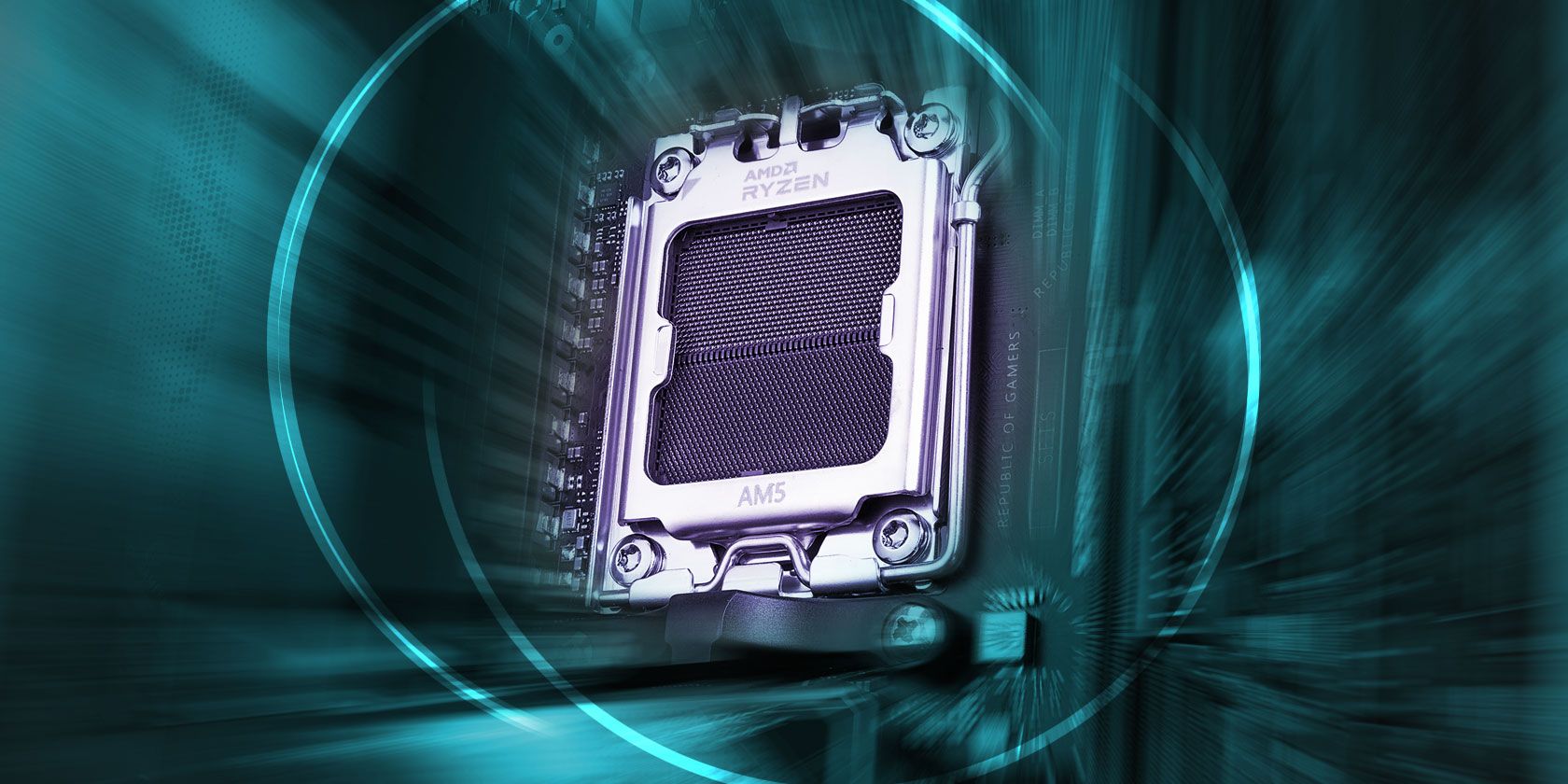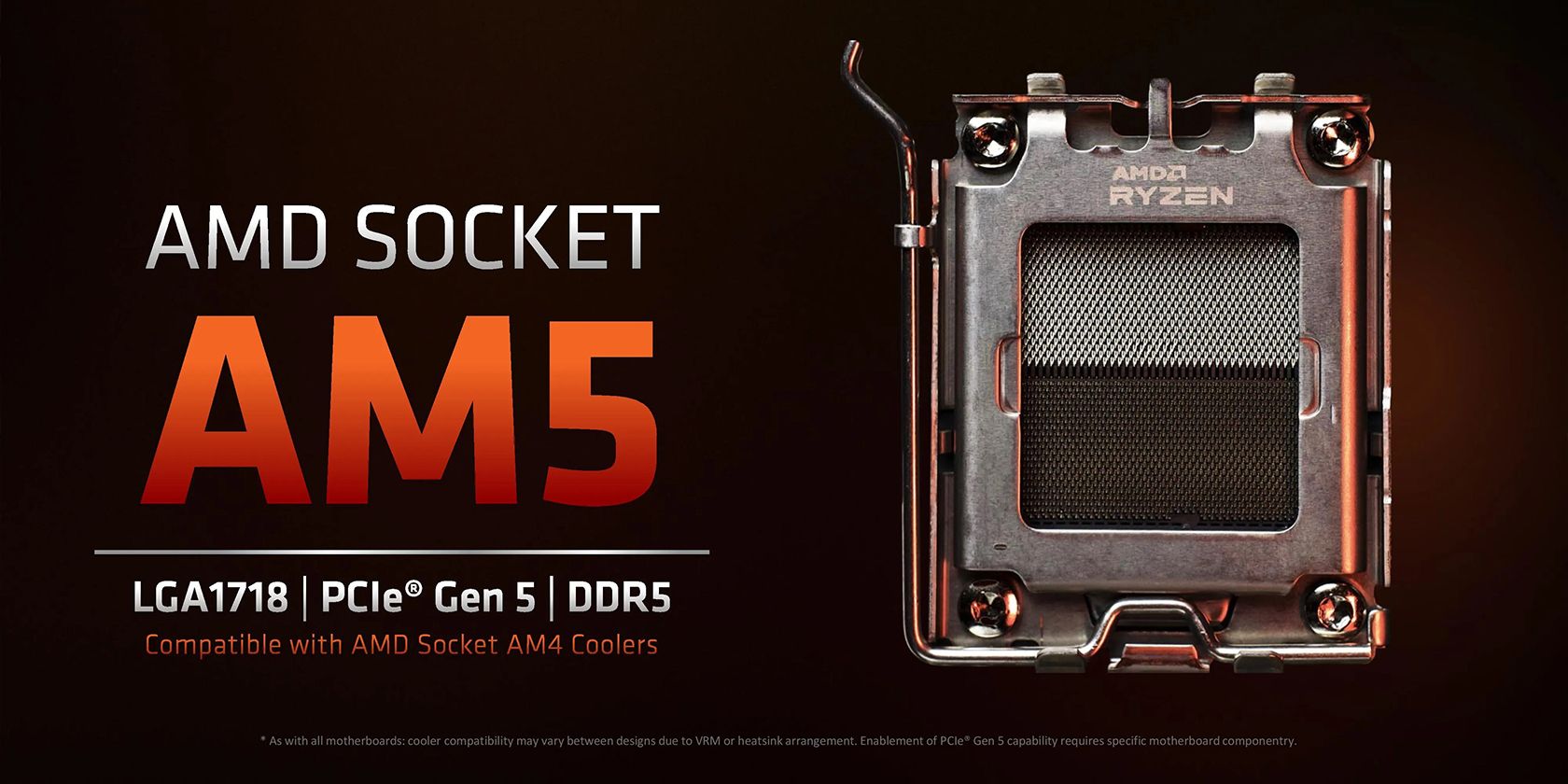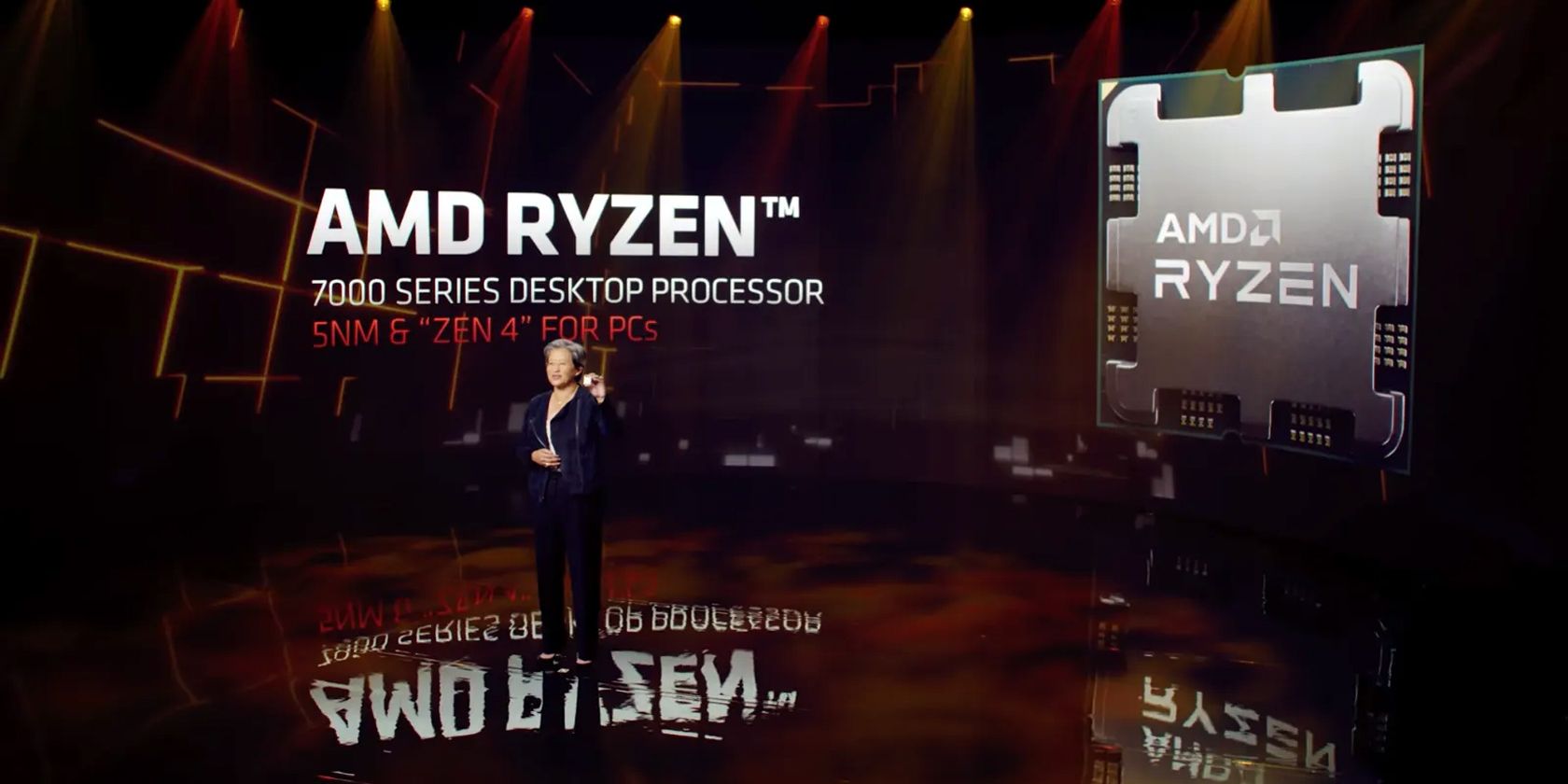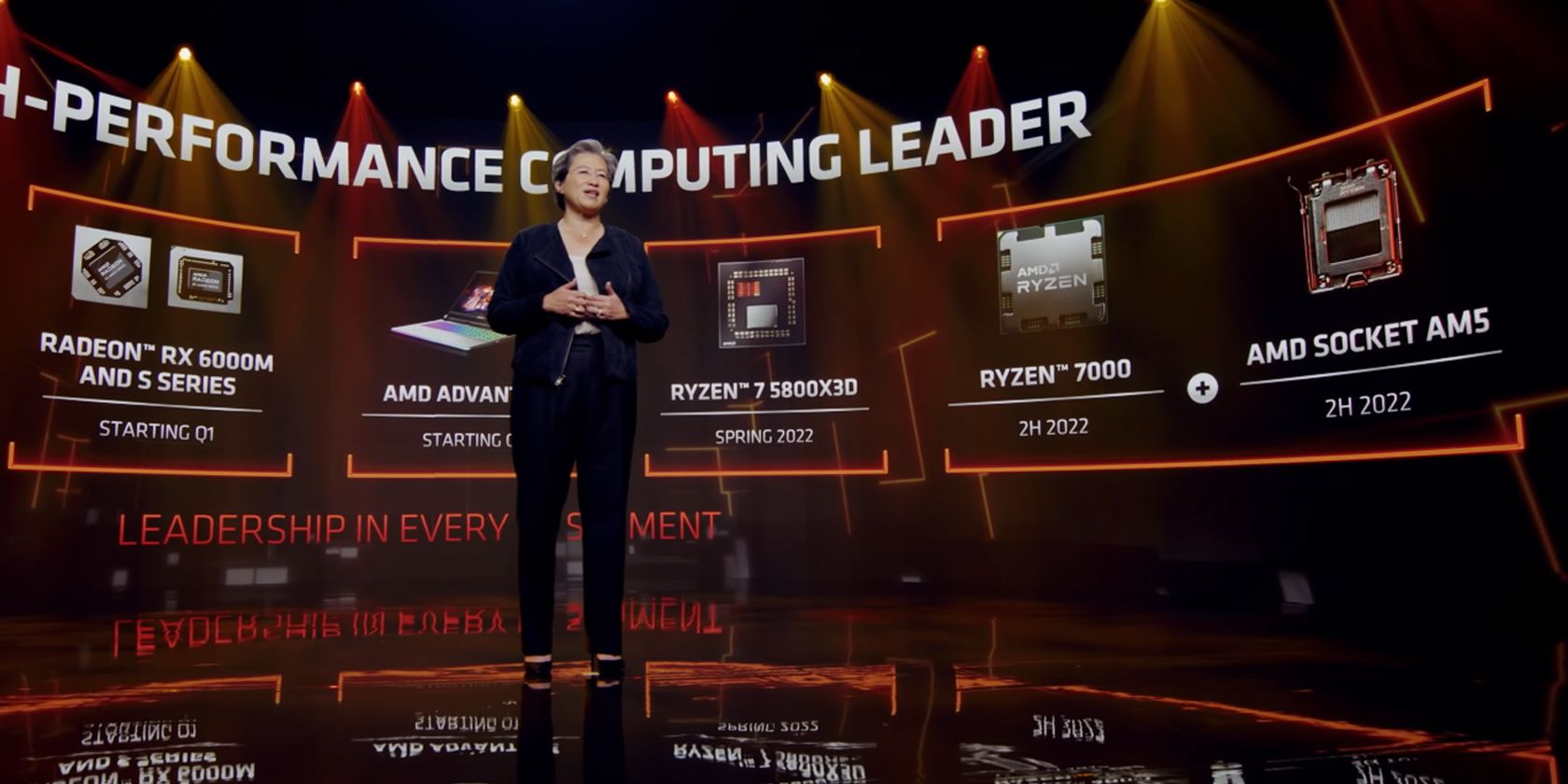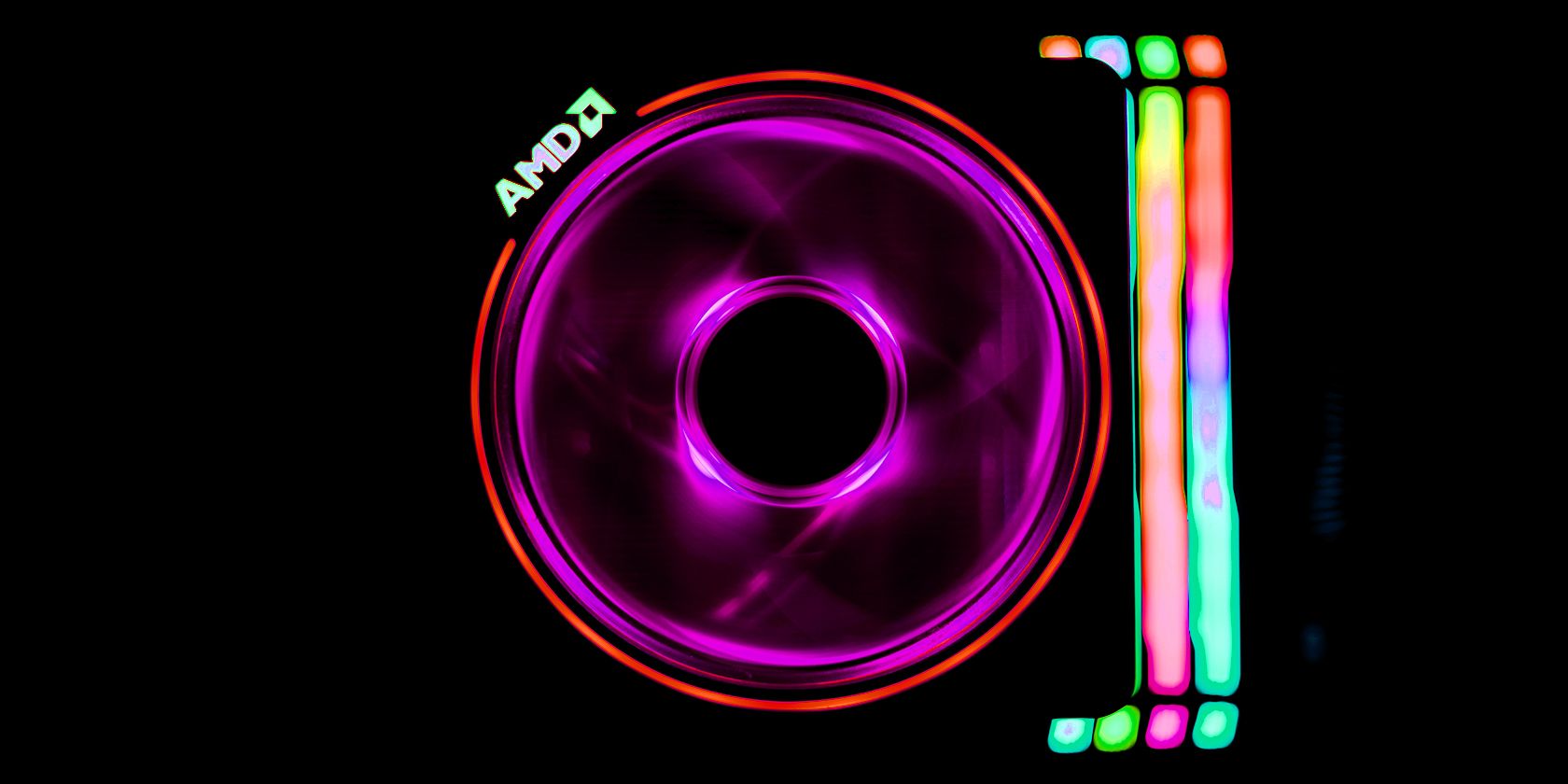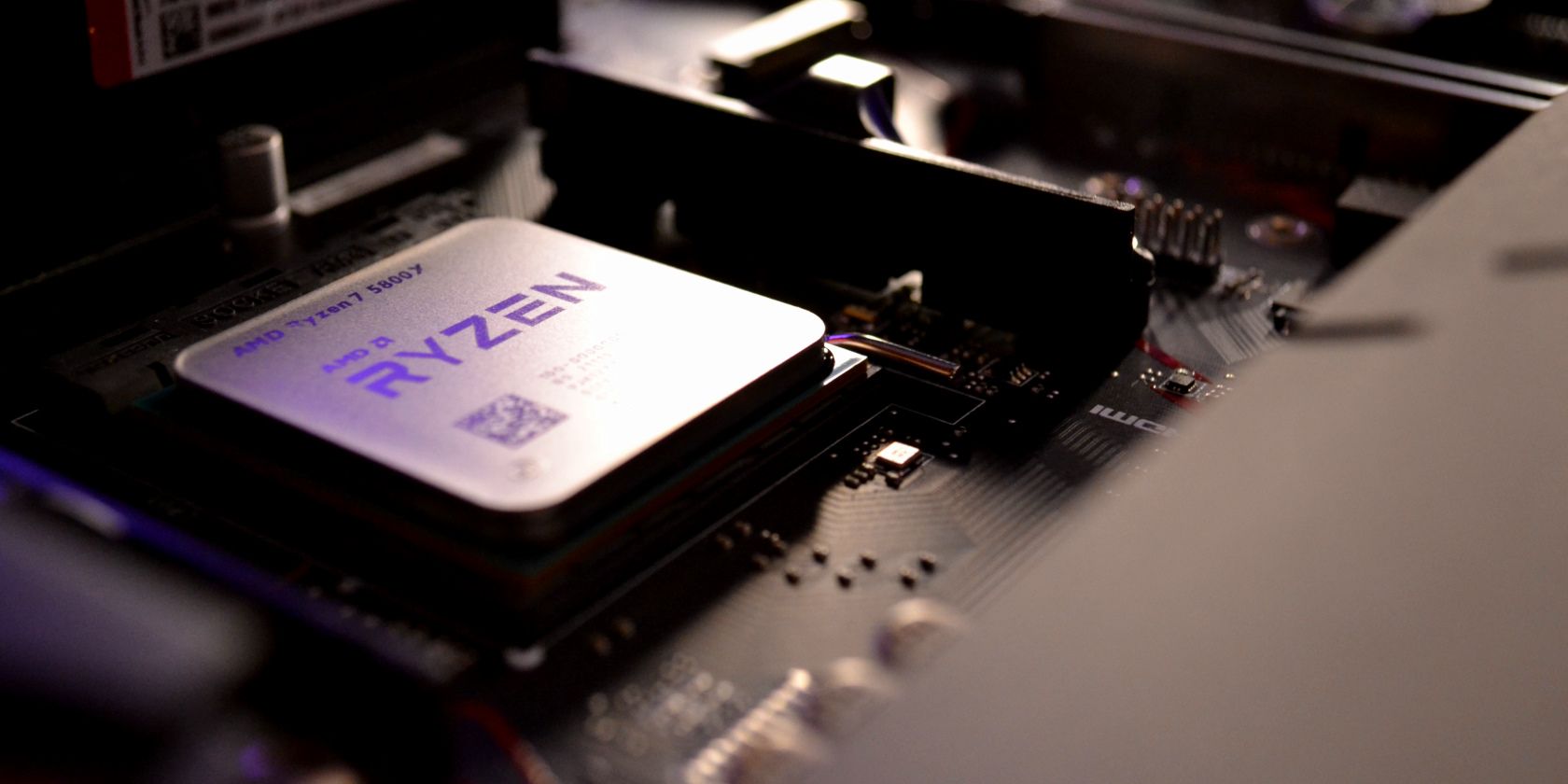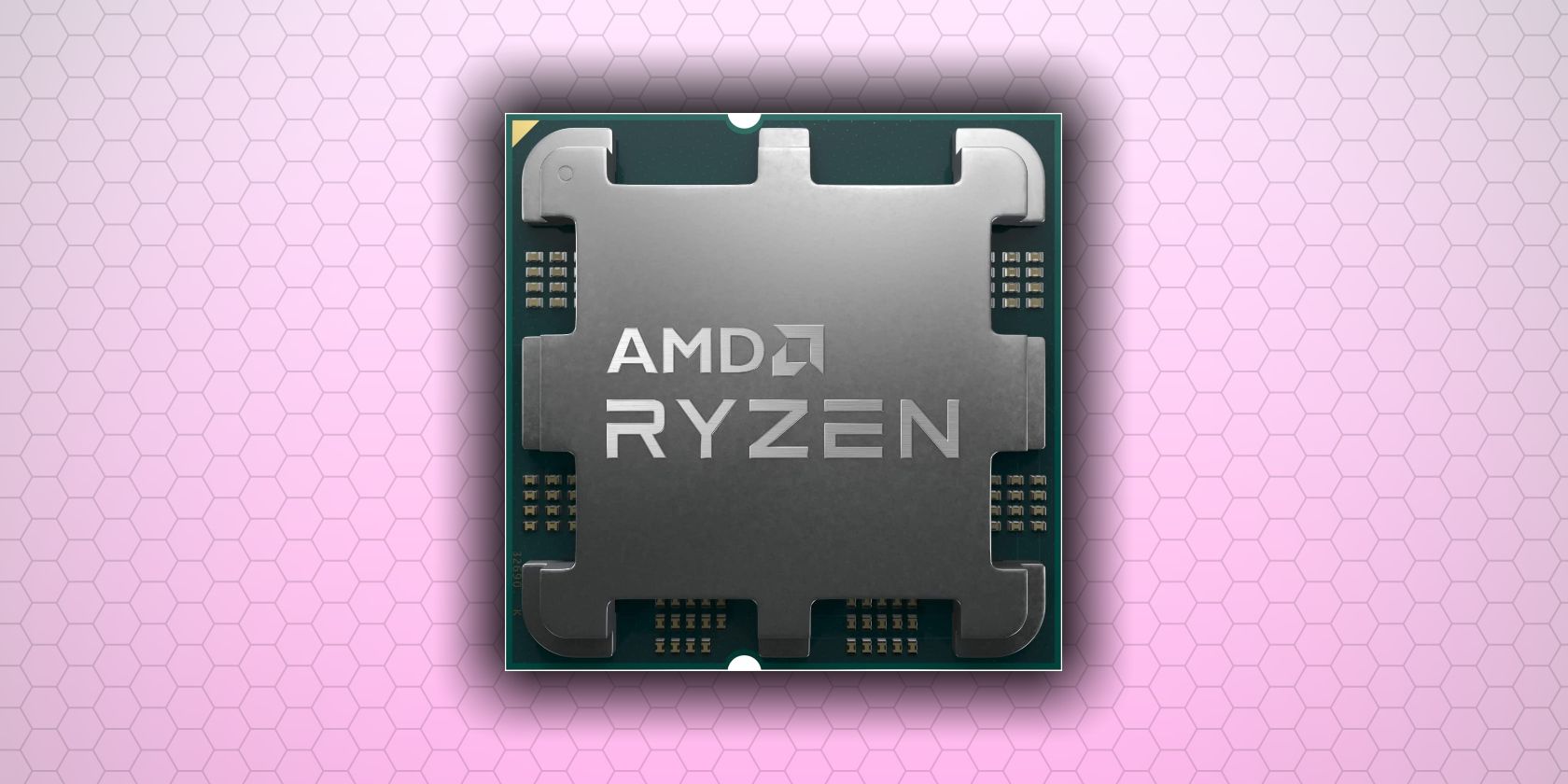AMD released the AM5 socket alongside the Ryzen 7000 Series desktop CPUs in August 2022. This updated the AM4 socket AMD launched in 2016 for the Zen+ architecture, which it used until the Zen 3 processors.
But with the release of the Zen 4 Ryzen 7000 chips and the corresponding AM5 socket, does it mean you should upgrade to AMD's latest offering?
What Is AM5?
Before discussing whether you should upgrade to AM5, we must determine what it is. The AM5 is AMD's latest socket design for its processors, meaning this is where the AMD CPUs go on the motherboard.
Previously, AMD used the AM4 socket, which used a Pin Grid Array (PGA). This means the AMD CPU had numerous pins on its underside, which you must slot in the AM4 socket. Because of this design, AMD processors that use this socket are more susceptible to damage if you drop it or place it askew on the socket.
However, the new AM5 transitions to a Land Grid Array (LGA) design, similar to Intel. This makes the processors more resistant to damage while allowing AMD to increase its AM5-compatible CPUs' pin density.
Which CPUs Use AM5?
Since AMD developed the AM5 socket for its latest CPUs, you can only use Ryzen 7000-Series chips. This includes the Ryzen 5 7600X, Ryzen 7 7700X, and Ryzen 9 7900X and 7950X.
Aside from those CPUs, you can expect that any future processors that AMD will launch, including more models of the Ryzen 7000-Series and the future Ryzen 8000-Series processors, will use the AM5 socket.
Which Chipsets Are AM5-Compatible?
Now, if you're planning to get one of the latest AMD Ryzen 7000 processors, then you better plan on getting an AM5-compatible motherboard as well. Currently, four chipsets support the AM5 socket—X670E, X670, B650E, and B650.
The X670 and X670E cater to the enthusiast market, while the B650 and B650E are more budget-friendly options for the AM5 socket. It's also rumored that AMD will launch the entry-level A620 chipset in 2023, but we might have to wait until CES 2023 before we hear any news about this.
With all these options, deciding which chipset you should choose can be difficult. So, if you need help, you should check out our comparison between the X670E, X670, B650E, and B650 motherboards.
When Did the AM5 Socket Launch?
We first heard of the AM5 socket from AMD at CES 2022 in January 2022. The company then released more details about it at Computex in May 2022. However, it was in August 2022 that the AM5 socket launched alongside the Ryzen 7000 processors.
Since the Ryzen 7000 chips started selling on September 27, 2022, you can say that the AM5 became available at the same time. After all, you can't use the new Ryzen 7000 processors without it.
What Advantages Does the AM5 Have Over AM4?
The increased pin density brought about by the switch to the LGA layout gives the AM5 several advantages over the AM4. This includes greater power capacity and the ability to fit more contact pads on a smaller surface.
Furthermore, the AM5 socket supports DDR5 and PCIe 5.0 technologies, allowing it to utilize the faster speeds these bring. So, if you're planning to upgrade to an AM5-socket processor, you should get new DDR5 RAM sticks, as DDR5 is physically different from DDR4 and isn't backward compatible.
You should also note that the AM5 socket is backward compatible with AM4 coolers. This means you can reuse the air or water cooler you used on your Ryzen 5000 CPU, allowing you to save a few bucks when building your new AMD PC.
If you want more detail, check out how the AMD AM5 is better than AM4.
How Long Will the AM5 Socket Last?
If you plan to upgrade your computer every so often, you should be concerned about future compatibility. Thankfully, AMD has a good track record regarding this. For example, the AM5's predecessor, the AM4, came with guaranteed support until 2020.
Since it launched in 2016, users knew they could reliably upgrade their AMD processors for four years without worrying about buying a new motherboard. True enough, it was only in 2022 that AMD launched the Ryzen 7000-series processors with the AM5 socket, meaning the AM4 supported over six years of processor development.
So, if you bought a Ryzen 1000-series chip in 2016, you can still upgrade to a much more powerful Ryzen 5000-Series CPU in 2022 without replacing the motherboard.
During the launch event, AMD committed to supporting the AM5 socket until 2025, giving it a shelf-life of at least three years. However, if we go by AMD's reputation with the AM4, you can expect the socket to be compatible with its latest chips well beyond that date.
Should You Upgrade to AM5?
If you're an AMD fan, upgrading to AM5 is not a question of if but of when. Since AMD will use this chipset moving forward, you'll eventually have to upgrade to it, whether you like it or not.
Nevertheless, upgrading to AM5 is a good choice if you're running an older CPU, like a Ryzen 2000-series or a 9th-Gen Intel Core processor from 2018. But unless you really need the extra power, you should hold off upgrading to AM5 if you have a more recent chip, like a Ryzen 4000-Series or 10th-Gen Intel Core CPU.
AM5 Is the Future for AMD CPUs
The AM5 socket allows AMD to create more powerful CPUs, letting it compete with Intel's powerful 12th- and 13th-Gen Intel Core processors. By switching to an LGA design, AMD's processors compete against Intel's offerings in terms of processing power while still having a smaller physical and electrical footprint.
It also opens up new technologies, like DDR5 and PCIe 5.0, allowing AMD users to enjoy the fastest RAM and SSDs you can get today. And if you choose the Extreme chipsets, you also get a PCIe 5.0 graphics slot, thus ensuring you can use it without needing to upgrade your motherboard once GPU manufacturers, like NVIDIA, Intel, and AMD itself, implement it.

